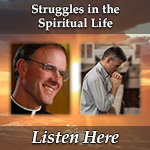Podcast: Play in new window | Download (Duration: 22:04 — 15.3MB) | Embed
Subscribe: Apple Podcasts | Spotify | Amazon Music | Android | Pandora | iHeartRadio | JioSaavn | Podchaser | Gaana | Podcast Index | Email | TuneIn | Deezer | Anghami | RSS | More

Inconsistency – Struggles in the Spiritual Life with Fr. Timothy Gallagher O.M.V.
Fr. Timothy Gallagher continues the story of John and how prayer can reveal inconsistencies in life, such as unresolved relationships or temptations, and how addressing these struggles leads to spiritual growth. Fr. Gallagher highlights the importance of honest self-reflection in prayer, even during periods of dryness or desolation, and encourages seeking guidance from trusted spiritual directors. Through John’s journey, the podcast demonstrates how aligning actions with faith, maintaining consistency in prayer, and trusting in God’s grace foster healing and deeper intimacy with God.
Struggles like temptation or desolation are common in the spiritual life but must not be kept secret. We can use the examples of saints like St. Teresa of Ávila and St. Thérèse of Lisieux, who overcame similar challenges through prayer and spiritual direction. By vulnerably sharing burdens with wise companions and taking concrete steps to address spiritual misalignments, individuals can restore peace and joy in their relationship with God.
You can pick up a copy of the book here.
Discerning Hearts Reflection Questions
- Prayer and Self-Awareness: How does your prayer life help you recognize areas of inconsistency or struggle in your relationship with God and others?
- Seeking Spiritual Guidance: Do you have a trusted spiritual director or confidant to whom you can turn for support and accountability in your spiritual journey?
- Perseverance in Dryness: How can you remain faithful in prayer during times of spiritual dryness or desolation, trusting that God is still at work?
- Aligning Life and Faith: Are there actions or habits in your life that conflict with your spiritual commitments, and what steps can you take to resolve them?
- Temptation and Grace: When faced with temptation, how do you invite God’s grace and guidance into your struggles to choose a path of holiness?
- Transparency and Freedom: What fears or barriers might prevent you from openly sharing your burdens with God or a spiritual guide, and how can you overcome them?
- Growth Through Struggles: How might God be using your spiritual challenges as opportunities for deeper intimacy and growth in faith?
An excerpt from the chapter, “Inconsistency”:
“Inconsistencies between our prayer and our lives will cause dryness in prayer: a refusal to forgive, firmly guarded anger, all-encompassing pursuit of material goals, self-centeredness, harmful relationships, and so forth. As these areas of our lives are brought to Christ and healed, dryness in prayer lifts.
Of the time before her profound conversion, Saint Teresa of Avila writes, “I began to return to prayer without, however, removing the occasions of sin. . . . My life was very hard, because in prayer I understood my faults more clearly.”When that conversion occurred, the dryness passed, and her prayer blossomed in a way that continues to bless the Church. The dryness caused by inconsistency between prayer and life is, at root, a loving call from God to healing and to new life.”
Gallagher O.M.V, Fr. Timothy ; Gallagher O.M.V, Fr. Timothy. Struggles in the Spiritual Life: Their Nature and Their Remedies (pp. 105-106). Sophia Institute Press. Kindle Edition.
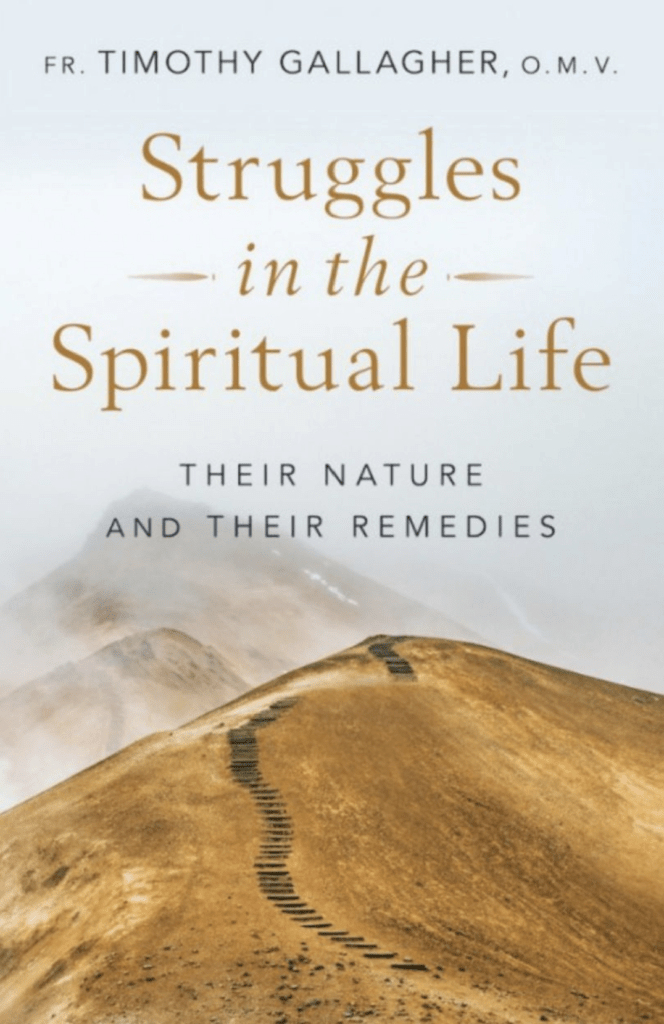 From the book’s description:
From the book’s description:
“Here is a powerful, life-changing book that will help you understand and conquer the struggles you face in your spiritual life. It’s a book for those who love the Lord and desire holiness yet often feel adrift or stagnant in their search for spiritual growth.
All of us encounter valleys on our journey with the Lord — those periods of spiritual desolation that are a painful yet unavoidable feature of our prayer life. Spiritual desolation is as complex as we are, so understanding what is happening and responding to it properly are critical to reaching the heights of holiness.
With warmth and understanding, Fr. Gallagher carefully identifies in this book the various forms of spiritual and nonspiritual desolation and supplies the remedy for each. You’ll learn how to discern whether your struggles derive from medical or psychological conditions or whether those struggles are spiritual and permitted by the Lord for reasons of growth. In each case, you’ll be given the remedy for the struggle. You’ll also learn the forms of spiritual dryness and of the Dark Night — and how to respond to them.
In chapter after chapter, Fr. Gallagher presents a particular struggle as experienced by fictional characters and then provides the advice he gives to those who come to him for spiritual direction about that struggle. You’ll gain confidence as you journey through desolation, and you’ll learn to reject the enemy’s ploys to infect you with a sense of hopelessness.“




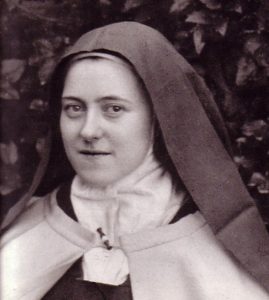
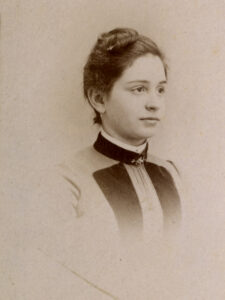






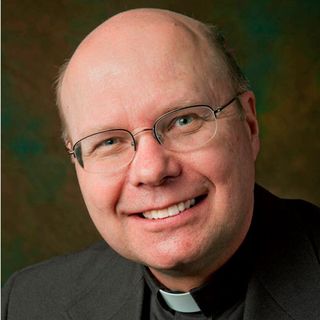
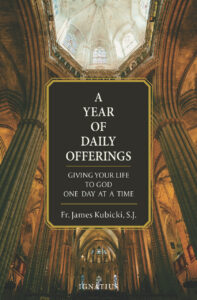 From the book’s description:
From the book’s description: